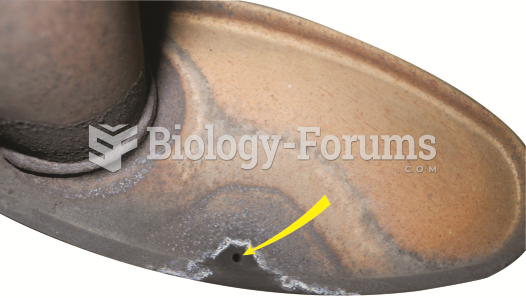|
|
|
Drug abusers experience the following scenario: The pleasure given by their drug (or drugs) of choice is so strong that it is difficult to eradicate even after years of staying away from the substances involved. Certain triggers may cause a drug abuser to relapse. Research shows that long-term drug abuse results in significant changes in brain function that persist long after an individual stops using drugs. It is most important to realize that the same is true of not just illegal substances but alcohol and tobacco as well.
Prostaglandins were first isolated from human semen in Sweden in the 1930s. They were so named because the researcher thought that they came from the prostate gland. In fact, prostaglandins exist and are synthesized in almost every cell of the body.
A seasonal flu vaccine is the best way to reduce the chances you will get seasonal influenza and spread it to others.
If you use artificial sweeteners, such as cyclamates, your eyes may be more sensitive to light. Other factors that will make your eyes more sensitive to light include use of antibiotics, oral contraceptives, hypertension medications, diuretics, and antidiabetic medications.
The Romans did not use numerals to indicate fractions but instead used words to indicate parts of a whole.
 Good body mechanics when facing the head or foot of the table. A. Head and back in alignment. B. ...
Good body mechanics when facing the head or foot of the table. A. Head and back in alignment. B. ...
 Finish with bilateral stroking to the entire back. Stand at head of the table with fingers pointing ...
Finish with bilateral stroking to the entire back. Stand at head of the table with fingers pointing ...
 Apply effleurage and direct pressure on attachments of pectoralis minor. Lift one arm off the table ...
Apply effleurage and direct pressure on attachments of pectoralis minor. Lift one arm off the table ...




